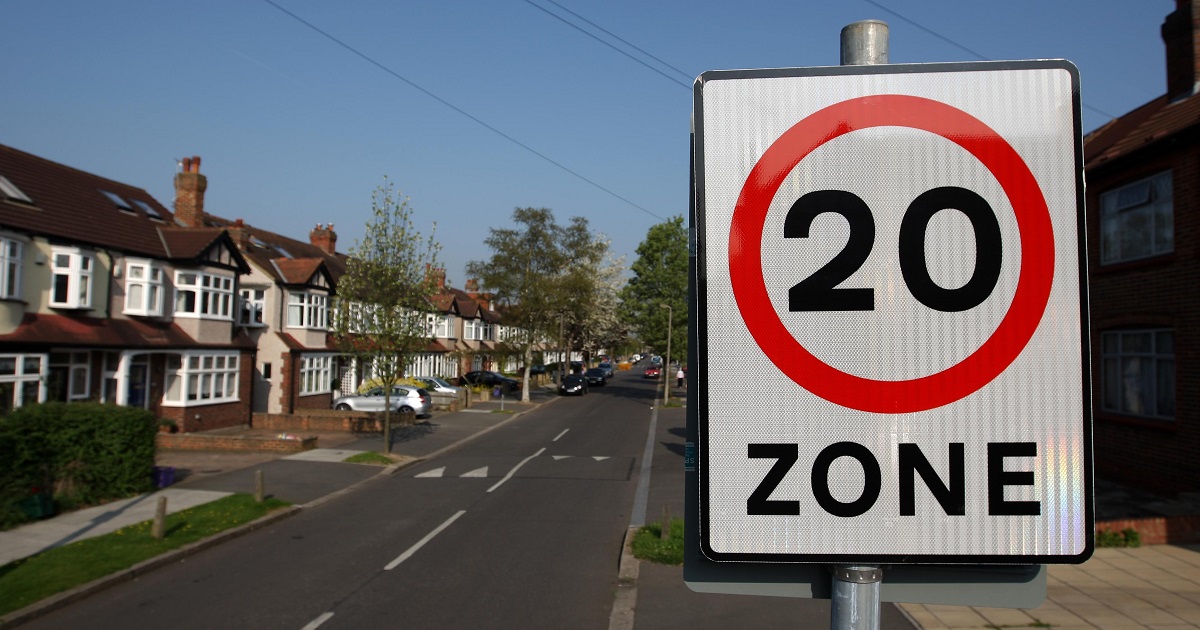On track or off road, the political dilemma of the 20mph limit

Chris Carter
On paper, it seems like a policy masterstroke. Investing £1.5bn of public money into creaking and defunct Welsh rail infrastructure to achieve the dual goal of greater economic growth and reduced carbon emissions.
The government in Cardiff Bay has quietly become one of the most radical, not just within the isles of the United Kingdom but in all of Europe when it comes to transport policy. Especially when it comes to achieving the ecological ends laid out by the Labour-led administration in the Senedd.
The under-construction South Wales Metro[1] area is the centrepiece of the Welsh government’s designs to connect communities and their workers to the economic opportunities of buoyant metropolitan areas such as – but not limited to – Cardiff.
So committed is the government, Deputy Climate Change Minister, Lee Waters recently announced[2] the government will cut all new road building in favour of sustainable transport options, including bus services and the railways.
Buses Reform
Building on this commitment to sustainable travel, the government is also focusing on legislation to enhance bus services. This year the Senedd will likely pass the new “Buses Bill” that puts to use a new franchising arrangement to ensure Council areas have more transport network coverage once the South Wales Metro is completed.
The legislation also seeks to reform bus services which have not recovered from the drop in post-COVID-19 passengers while also facing rising fuel and staff costs/shortages.
The bill still needs to pass the legislative process and then face the further delay of being introduced by newly nationalised Transport for Wales before then finally being implemented by local councils.

The Big Problem
Despite the delay, to the green minded among you, it would appear to be a great pairing of policies, replacing investment in roads, getting us out of polluting cars to catch buses and trains to go about our business.
Yet, while these initiatives would ordinarily be celebrated, no one is talking about them. In fact, there is just one subject on everyone’s lips: the dreaded new 20-mph speed limit.
Due to be introduced in September this year, the new speed limit and the reasons for it are an entire Op-Ed in and of itself but it is undoubtedly and by all accounts a deeply unpopular[3] policy. In a nation mostly made up of motorists[4], the Welsh government scores poorly on issue-based polling[5] when it comes to transport.
This is of course frustrating for those that see the Welsh government as the most successful in all the UK in taking climate, transport and economic challenges so seriously as to invest precious taxpayer money in the new travel zone.
Why now?
It does beg the question that it would be surely better, and more palatable to the public, to introduce the new speed limit to coincide with the grand opening of the newly integrated Welsh transport network?
The fact remains public transport will not be in the state Welsh politicians envision for quite some time.
What is worse is this takes place in a toxic political climate. Welsh Conservative leader, Andrew RT Davies, has already been on the offensive[6] and, sensing political danger, reversing his own previous support[7] for the 20-mph limit.
Realistically the choice for the Labour administration in Cardiff now boils down to two options.
Firstly, stay the course on the introduction of the 20-mph limit in September and hope it is not as unpopular as polling or the nation’s dinner tables suggest?
The second, and this may seem late in the day but not impossible, pause the launch of the 20-mph limit to coincide with the other, likely popular, integrated transport network envisioned?
Presenting this as an integrated strategy to achieving economic growth, connectivity, fewer road deaths, while in the end achieving the sustainable goal of reducing the time spent sat in cars would unmuddle things, at least.
With battle lines being drawn ahead of the general election, the Welsh Government will come under more scrutiny than ever before as the Conservatives seek to hold onto power in Westminster.
Presentation will be everything going into the election, and the question that remains is just how long of a shadow will the 20-mph limit cast over Wales and its government? Most importantly how does it affect all of us?
Chris Carter is an infrastructure and transport research specialist. He writes in a personal capacity.
Share this:
Support our Nation today
For the price of a cup of coffee a month you can help us create an independent, not-for-profit, national news service for the people of Wales, by the people of Wales.
References
- ^ South Wales Metro (tfw.wales)
- ^ announced (nation.cymru)
- ^ deeply unpopular (redfieldandwiltonstrategies.com)
- ^ mostly made up of motorists (www.gov.wales)
- ^ issue-based polling (redfieldandwiltonstrategies.com)
- ^ been on the offensive (twitter.com)
- ^ previous support (nation.cymru)